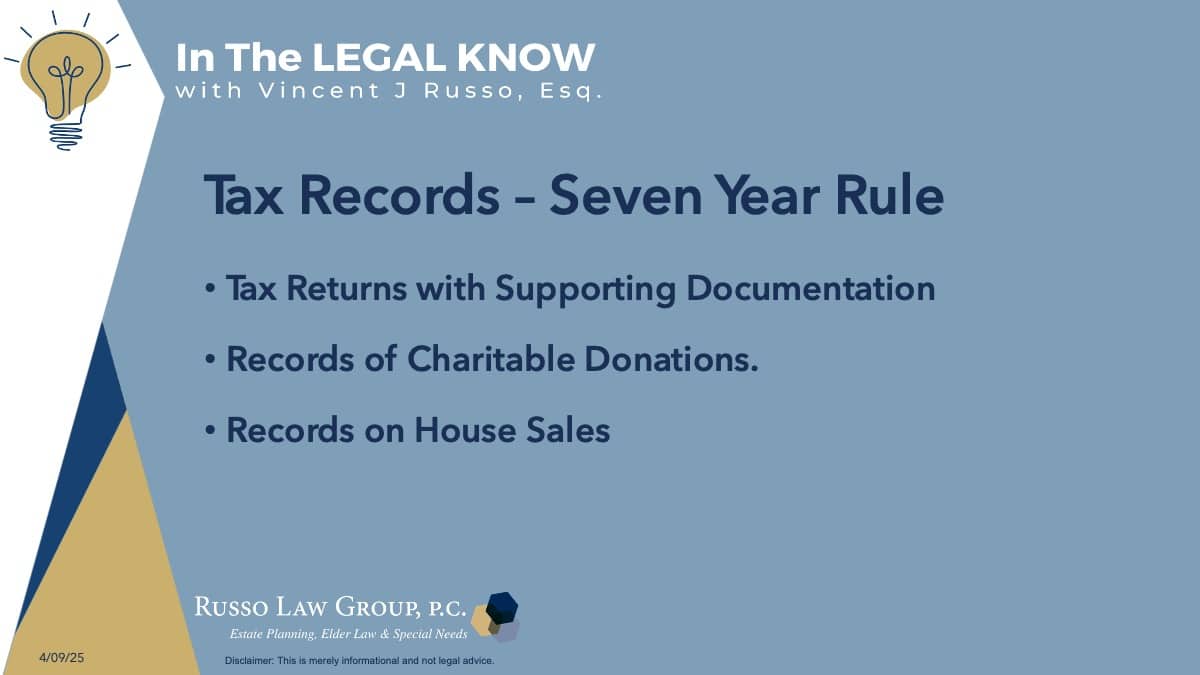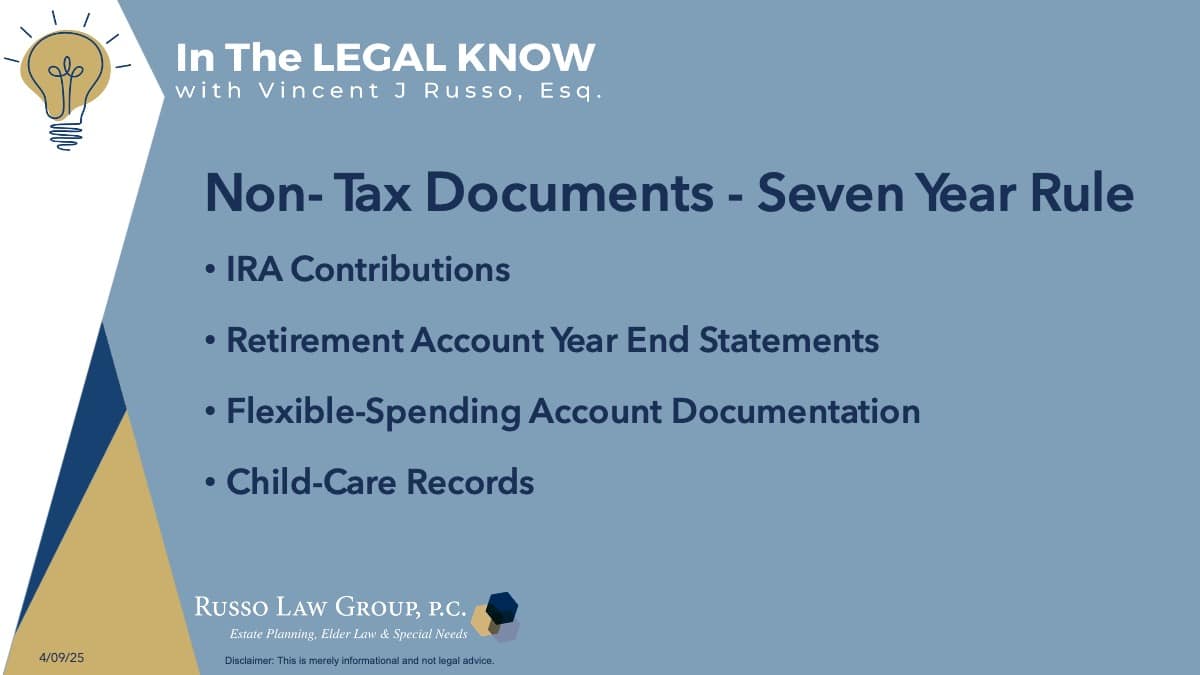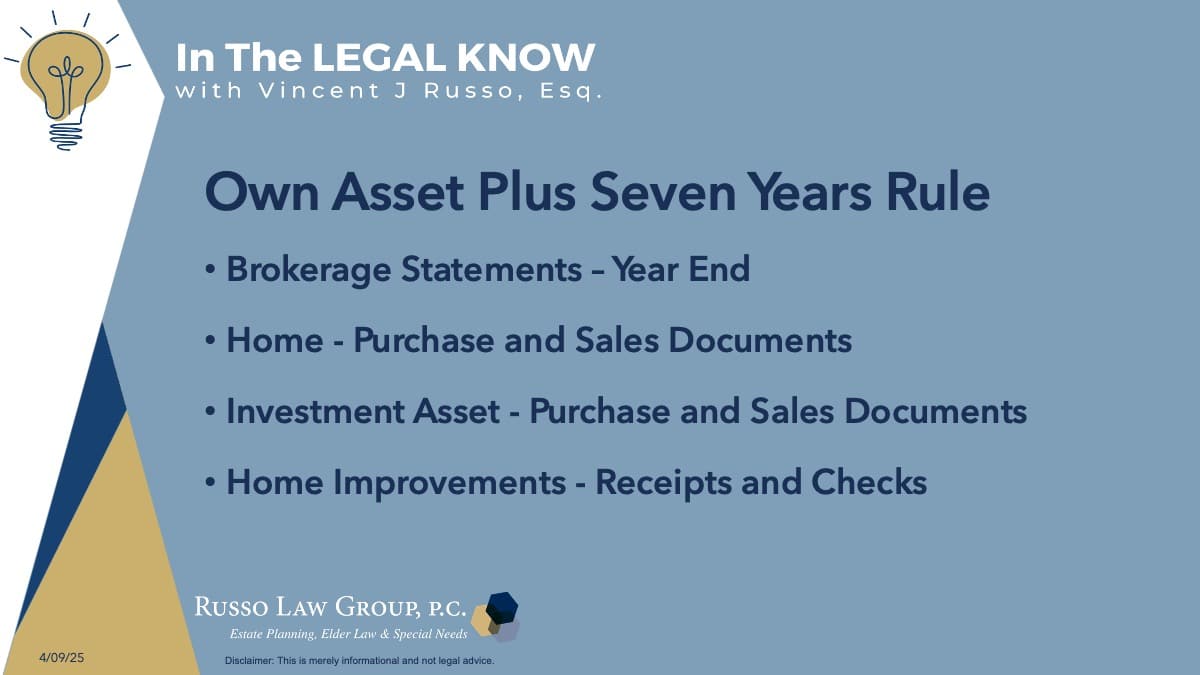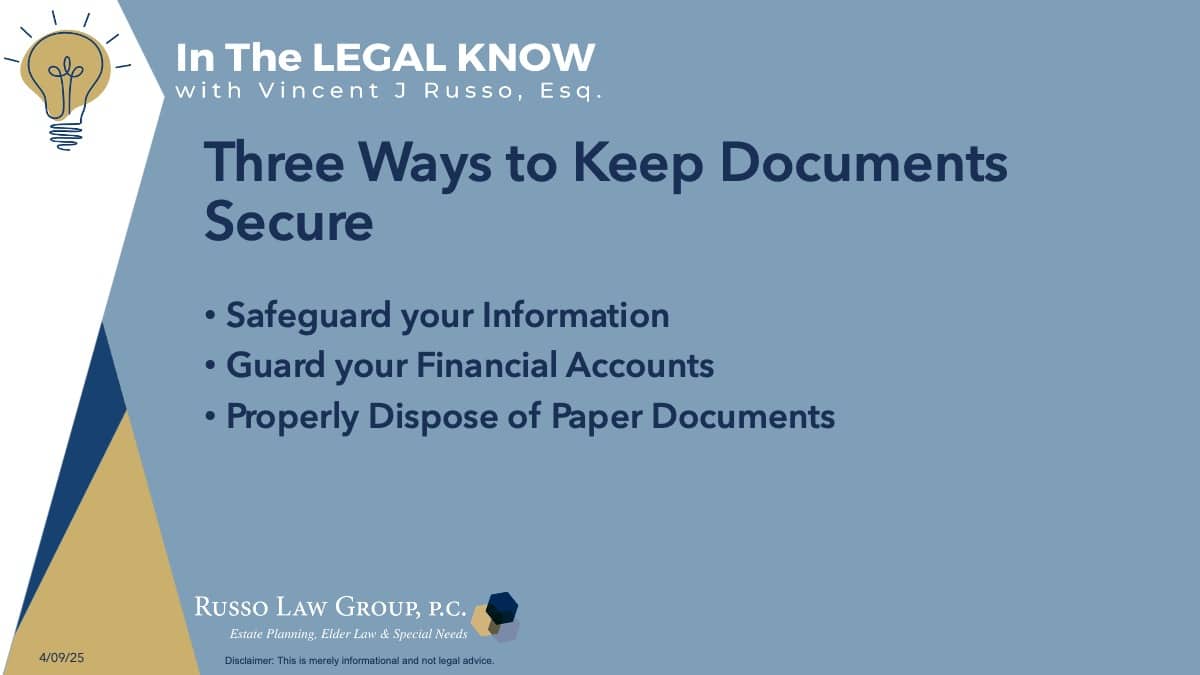Delve into the significance of resolutions, their origins, and actionable advice for making meaningful life improvements this year.
Confusion abounds when it comes to whether you should keep your personal documents and for how long.
This originally aired on the Catholic Faith Network’s show CFN Live: https://youtu.be/m6sxRp_p6B8
There are two types of people: those who throw out stuff and those who keep stuff. Regardless of the type of person you are, it is important to keep certain documents and to throw out unwanted, unnecessary documents at the appropriate time in the appropriate way.
The decision on which way to go will very much depend on the type of document and how long you have had the document.
As your financial life gets more complicated, it’s difficult to know how long to keep documents and when it’s safe to get rid of them. Some things you’ll need to hold on to for your whole life and others for just a few months. You probably already know that important documents such as tax returns, social security card and bank statements need special attention, but for how long, and in what format?
And what is the best way to safeguard all that personal data?
Generally, you can throw away most personal documents after 3-7 years, depending on the type, but you will need to keep some documents indefinitely.
Should I throw away tax returns and supporting documentation?
Tax Records: Generally, one should keep tax records at least 3 years from the date you filed your return or at least 2 years from the date you paid the tax, whichever is later. To be safe, my general rule of thumb is seven years.
For example:
- Tax returns along with the documentation used to prepare them.
- Records of charitable donations.
- Records on houses you’ve sold.
- Receipts, diaries, logs pertaining to tax returns
The length of time you should keep a document depends on the action, expense, or event which the document records. Generally, you must keep your records that support an item of income, deduction or credit shown on your tax return until the period of limitations for that tax return runs out.
The period of limitations is the period of time in which you can amend your tax return to claim a credit or refund, or the IRS can assess additional tax. The periods of limitations that apply to income tax returns is generally three years. Unless otherwise stated, the years refer to the period after the return was filed. Returns filed before the due date are treated as filed on the due date.
Keeping copies of your filed tax returns can help in preparing future tax returns and making computations if you file an amended return.
TIP: Keep tax records indefinitely if you did not file a return or you filed a fraudulent return!
What about non-tax documents?
It will depend upon the type of document. For today, I will break it down in terms of how many years a particular document should be held.
The One Month Rule: Utility bills, deposits and withdrawal records
If you’re self-employed, you may need your utility, cable and cell phone bills for tax purposes. Otherwise, you can dispose of them as soon as you verify your payment was processed. You can also dispose of bank withdrawal and deposit slips after verifying them with your monthly statement
The One Year Rule: Regular bank and credit card statements and pay stubs.
Keep either a digital or hard copy of your monthly bank and credit card statements for the last year. It’s a good idea to keep your digital copies stored online if you choose to go paperless. You should also hold on to pay stubs so that you can use them to verify the accuracy of your Form W-2 when tax season arrives.
How long should I keep past utility bills?
Keep for a year or less – unless you are deducting an expense on your tax return:
Monthly utility/cable/phone bills: Discard these once you know everything is correct.
Credit card statements: Just like your monthly bills, you can discard these once you know everything is correct.
The Seven Year Rule for Keeping Documents
Now, let’s go to my Seven Year Rule for keeping documents.
Here is a list of documents you can feel comfortable throwing away after seven years:
- IRA contributions.
- 401(k) and other retirement plan year-end statements.
- Flexible-spending account documentation.
- Child-care records.
Are there documents that one should keep for more than seven years?
There is a series of documents that you should keep while you own the asset plus seven years.
- Year-end brokerage statements
- Home purchase and sale documents
- Investment property purchase documents
- Home improvement receipts and cancelled checks
- Home repair receipts (warranty period for item)
- Investment Asset purchase and sales slips
- Dividend reinvestment records
- Mutual fund annual statements
Are there documents one should always keep?
Absolutely, we need to be very careful. There are certain documents that you should always keep.
They are as follows:
- Birth and death certificates
- Social Security cards
- Marriage licenses
- Estate Planning Documents
- Deed to Residence
- Divorce Documents
- Retirement Account reports
- Divorce papers
- Military Discharge Documents
- Life Insurance Policies
- Wills, Trusts and Advance Directives
What should people do to keep their documents secure?
It’s important to make sure your sensitive information is safe and accessible. There are three ways to keep your documents secure.
1. Safeguard Your Information
For physical documents, designate a safe, out-of-the-way place in your home to store all paper records that protect them from damage or theft. For digital records, be sure to archive and back up all electronic records. It’s a good idea for these records to be password protected.
2. Guard your Financial Accounts
Use complex passwords to keep your account information safe. Make sure your username and password combination is different from the ones you use for personal email, online merchants and social media accounts. Protecting your computer with antivirus software is also a good idea.
3. Properly Dispose of Paper Documents
You will put yourself at risk of fraud or identity theft if you simply throw away private documents, such as financial statements. This means deleting, erasing, or destroying them in a way that prevents unauthorized access, recovery, or misuse.
The best way to properly dispose of documents that contain your personal information and are no longer needed is to shred them before discarding them. For example, you can use a shredder, scissors, or fire for paper files; a software, app, or tool for digital files; and a recycle bin, trash can, or dumpster to collect and discard your files. I suggest investing in a cross-cut shredder that will eliminate all traces of your personal information.
If you don’t own a paper shredder, check for community shredding events near you or ask about AAA Shred Events at your local branch.
Also consider having paperless statements and documents, which can help reduce the risk of identity theft posed by lost or stolen mail.
Russo Law Group to Host Earth Day Shred Event
On Tuesday, April 22, from 10am to 4pm, Russo Law Group will host an Earth Day Shred Event, providing an opportunity to safely and securely dispose of sensitive documents while promoting environmental sustainability. The event will be held across all three office locations in Garden City, Lido Beach, and Islandia.
CLICK HERE for registration and workshop information!
Attendees will also have the opportunity to attend Fraud Awareness Workshops at 11am and 3pm where experienced attorneys will help identify common scams to safeguard yourself and your loved ones. It’s the perfect opportunity to gain valuable knowledge while caring for the environment!
We hope you found this article helpful. Contact our office today at 1 (800) 680-1717 and schedule an appointment to discuss what makes sense for you and your loved ones.
Disclaimer: The information provided above is for general informational purposes only and is not legal advice.










Comments (0)